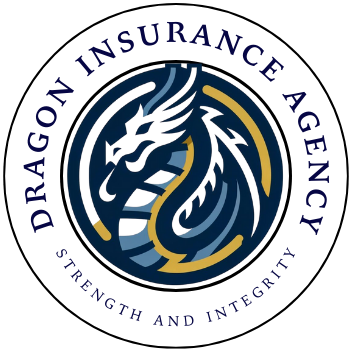Car insurance costs have climbed steadily in recent years, with many drivers wondering how to ease the strain on their monthly budget. There’s no one-size-fits-all trick, but understanding how rates are calculated can give you more control over what you pay. Asking how can I get cheaper car insurance is more common than ever, and the answer lies in a mix of habits, timing, and informed choices. Dragon Insurance Agency explains that “cutting costs on your policy doesn’t mean cutting corners—it means knowing where to look and what matters most to insurers.”
Ways to find cheaper car insurance quotes
A common situation: someone buys a new car, gets slapped with a higher-than-expected premium, and starts asking friends or searching online about what they could have done differently. That frustration is valid, but often avoidable. Whether the driver is experienced or just starting out, being proactive goes a long way. In one recent case, a client lowered their premium by over $400 per year by adjusting a few details and switching companies after comparing quotes.
-
Shop for quotes from at least three companies before renewing
-
Timing matters—avoid lapses in coverage that raise your rates
-
Opt for smaller or regional insurers who may offer lower pricing structures
Understanding car insurance discounts
Discounts aren’t just for seasoned drivers with spotless records. Many insurers offer ways to trim costs for a wide range of habits and behaviors, and those options often fly under the radar. Dragon Insurance Agency notes that bundling home and auto, enrolling in telematics programs, or even paying your bill annually instead of monthly can shift your premium downward. The National Association of Insurance Commissioners (NAIC) also confirms that small behavioral changes can make a long-term difference.
-
Safe driving programs track your behavior and can unlock savings
-
Students with a B average or higher may qualify for academic discounts
-
Low mileage discounts reward drivers who use their cars sparingly
Lowering monthly car insurance costs
Monthly premiums can feel like a fixed cost, but they’re more flexible than most people think. Adjusting your deductible, changing the frequency of payments, or even switching to paperless billing can lead to modest yet consistent reductions. According to the Insurance Information Institute, choosing a higher deductible can reduce your premium by up to 40%, depending on your situation and provider.
-
Raise your deductible if you have savings to cover a potential claim
-
Switch to automatic billing or annual payment options to avoid fees
-
Remove unnecessary extras like rental reimbursement or roadside coverage if not essential
Compare insurance rates the right way
Too many drivers jump on the first rate they find, thinking there’s little difference between providers. That’s rarely the case. Comparing insurance rates doesn’t just involve the bottom-line number—it’s also about matching the right coverage levels for your needs. Insurance.com reports that drivers can save an average of $471 annually by switching insurers.
-
Use quote comparison tools but verify the policy details directly with agents
-
Review your driving history for inaccuracies that could affect quotes
-
Ask companies about discounts not listed online
Improving driving records over time
Insurance is all about calculated risk. A cleaner driving record signals lower risk, and that translates into cheaper premiums. Speeding tickets, accidents, and DUIs stay on your record for years—sometimes up to seven. But positive habits have a compounding effect. Many states, according to the Department of Motor Vehicles (DMV), offer point reduction programs through defensive driving courses.
-
Complete a defensive driving course to reduce points and demonstrate responsibility
-
Avoid small claims if repair costs are close to your deductible
-
Ask your provider how long violations affect your rate—it varies by state

Choosing low-cost cars for insurance
Some vehicles come with higher insurance tags not because of how expensive they are, but how costly they are to repair or how likely they are to be stolen. The Insurance Institute for Highway Safety (IIHS) reports that certain models with high safety ratings and fewer claims history consistently cost less to insure. Opting for practicality over prestige can pay off.
-
Family sedans, minivans, and small SUVs often carry lower premiums
-
Vehicles with anti-theft devices and modern safety tech can qualify for discounts
-
Avoid sports cars or luxury models if minimizing cost is the goal
Adjusting policies to cut insurance costs
Not everyone needs full coverage, especially if they’re driving an older vehicle. Reassessing what you’re paying for—and whether it aligns with your current lifestyle—can lead to immediate savings. Dragon Insurance Agency advises reviewing your policy at least once a year to make sure you’re not paying for outdated coverage.
-
Drop collision or comprehensive coverage if your car’s value is low
-
Reconsider add-ons like roadside service if you already have it elsewhere
-
Make sure your coverage limits reflect your actual risk tolerance
Lower rates for young or new drivers
Younger drivers typically face the highest premiums, mostly due to lack of experience and higher claim rates. But they aren’t stuck with those numbers forever. By building a positive record early and taking advantage of every available program, newer drivers can chip away at that premium. According to the U.S. Department of Transportation, drivers aged 16–24 have higher accident rates, but also the most room for improvement.
-
Join a parent’s policy if possible—it often costs less than a separate one
-
Choose vehicles that insurers consider low risk for first-time drivers
-
Take certified driver’s ed courses to show insurers you’re serious
What matters when trying to get cheaper car insurance
There’s no secret password or one-time fix when it comes to lowering car insurance. It’s a moving target influenced by vehicle type, location, driving habits, and even credit score in some states. What works for one driver may not work for another, and that’s where expertise matters. Dragon Insurance Agency stresses the importance of reviewing policies annually and being open to switching providers when the numbers don’t add up.

Key takeaways for cheaper car insurance
-
Small changes often lead to noticeable savings
-
Comparing quotes is worth the time and often reveals hidden differences
-
Discounts are more common than people realize—always ask
-
Driving behavior and vehicle choice both impact cost
-
Policies should evolve with your lifestyle and driving habits
FAQs about getting cheaper car insurance
Can bundling policies really lower my rate?
Yes. Most insurers offer multi-policy discounts when you combine auto with renters, homeowners, or life insurance. This can reduce your premium by 10–25%.
Does my credit score affect my car insurance premium?
In many states, yes. Insurers often use a credit-based insurance score as a factor, though some states have banned the practice.
How often should I shop for new quotes?
Annually. Rates change due to shifts in your driving history, vehicle value, and insurer pricing models.
Do traffic tickets always increase premiums?
Not always. A single minor ticket might not affect your rate, but multiple violations or serious infractions likely will.
Is full coverage always necessary?
No. If your car is older and not worth much, carrying only liability coverage might make more sense financially.

